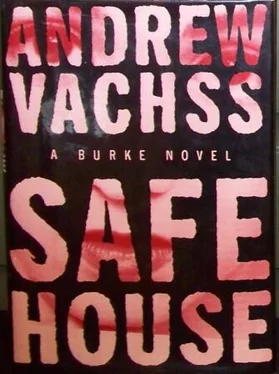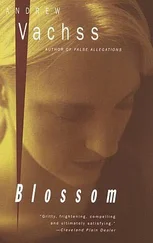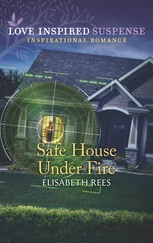She stopped talking then. Got up and walked around in a little circle. Came back and took her seat again.
“Her name was Starr,” she said. “Good name for a little hippie, wasn’t it? When she came to us she was maybe fourteen. . . . Nobody really knew. And we never asked.” She took a breath. Then she said, “Everything was fine until they came for her.”
I knew better than to hold her eyes all through whatever story she wanted to tell, so I focused on the tattoo, not even sure if I was actually seeing it in the darkness, just knowing it was there, moving as she spoke.
“Who came for her?” I asked.
“Bikers. A whole pack of them. They said she was their property, and they wanted her back.”
“Were they flying colors?”
“What difference does it . . . ? Oh, I know what you mean. I’m not being fair. With the story, I’m not being fair. We knew a lot of bikers. They had their own communes, just like we did, only they lived in cities. They were nice, most of them. Friendly to the big people, sweet to the children. I remember one of them—Romance, his name was, I’ll never forget that. He had a great flaming red beard, like a Viking. I used to go for rides on the back of his motorcycle all the time. Not off the grounds—my mother wouldn’t let me do that—but we had plenty of land.”
She was rambling. I threw out a line. “He was the one who taught you to ride?”
“No, that was Roxanne. She had this old Indian, a big huge black thing with a white stripe on the tank. It had a foot clutch. She had to work it for me while I sat in front of her. She was . . . How do you know I ride?”
“Just a guess,” I told her, straight-faced. “So these bikers—the ones who came for Starr—you didn’t know them?”
“None of us knew them. They were from downstate somewhere. California, I think. But I don’t know. I don’t remember much about them except . . . my father wouldn’t let them take her. Starr. He was very gentle with them. He explained it. Nobody is property. No person can own another. That’s wrong. It’s against nature. Starr was scared. She said she would go with them, but my father said she didn’t have to go if she didn’t want to. I remember it like it was an hour ago. Three of the bikers, aimed like an arrowhead. Straddling the motorcycles, the leader in front. Telling my father that Starr was their property. She even had their brand on her. They told my father to make her strip, take a look for himself. . . .”
Crystal Beth started to go somewhere else, like she had earlier, in the café. “What happened?” I asked her, trying to bring her back.
“They killed him,” she said in a flat, detached voice. “The leader did it. He just took out a pistol. A big chrome one. I remember it gleaming in the sun. I thought it was pretty. He shot my father in the chest. He was standing so close blood flew out of my father’s back. Then they turned around and rode off.”
“What did—?”
“Nobody did anything. We were in shock. The sun disappeared. I don’t even remember the rest of that day. The police were there. It was a death. Not just the death of my father, the death of everything.”
“Did they ever catch—?”
“The killers? They left Starr there. She knew who they were, but she wouldn’t tell.”
“If—”
“She wouldn’t tell the police. But she told my mother. It was a few weeks later when she told. That’s when she left.”
“Starr?”
“My mother,” Crystal Beth said, a sadness in her voice as long and deep as thigh-bone marrow. “My father was a brave man, but he was a hippie in his heart. Gentle and sweet. A poet in his soul. But my mother, she was just with him, you understand? She loved him, so she lived his life. But that wasn’t her, not in her spirit. She was a warrior.”
“So she went after them?”
“She told me goodbye. She told me she was going to be with my father. I was grown then, almost sixteen. My mother had money. We weren’t supposed to have money. Not individual money, you know? But she had some, and she told me where it was. And some other things. That’s when I got my markings,” she said, touching her jaw. “My mother did that. Herself. Her mother’s mother taught her, she told me. But she never did her art on anyone else, not in all the time I knew her.”
“And she just left then?”
“There was a ceremony. I don’t know if I could explain it to you. It was . . . just me and my mother, alone. When I got my markings. She took Starr with her and they left in the pickup truck we had.”
“And you never heard from her again?”
“In a way I did. There was a . . . network. In a little book my father had. I went to the different places. Traveling. Not just here—I went to Europe too. There was a passport in the stuff my mother left me. I’d never known I had one. Never thought I’d ever leave the commune. . . .
“I was looking for my purpose,” she said. “Like my mother wanted. One of the families I stayed with told me—I don’t know how they knew. When I came back to America, I went to the library, and I found it in the newspapers.”
“What happened?”
“Happened? Nothing happened. My mother went to be with my father, like she said she would. As she had vowed. My father, he wasn’t always a man of peace. I don’t know why he left Ireland, but I know he had to. He always kept a chest, like a captain’s chest? My mother emptied it out before she left. She gave me my father’s poems, and she took the other stuff.”
“He had—?”
“I don’t know what he had. All I know is that my mother took whatever it was. To their clubhouse, that’s what the newspapers called it. She walked in there with a knapsack on her back. And while she was inside, the place blew up. Seven of them died. My mother too.”
“Damn.”
“I started walking then,” Crystal Beth said. “And I didn’t stop until I found my purpose.”
She sat there in silence after that. Not inside herself, just watching. And waiting.
I did that too.
It was a few minutes before she spoke. “Does my story make you . . . feel anything?”
“Yeah,” I told her true. “Jealous.”
She nodded like that made perfect sense to her. Didn’t say anything else.
“Was this your purpose?” I asked her finally. “This . . . shelter?”
“Not a place,” she said softly. “A place is never a purpose. I knew my purpose was to protect. Like my father did Starr.”
“Like your mother did . . . ?”
“Me? Maybe. I didn’t think so at first. I thought it was just revenge. My mother believed in balance. Natural balance. The others, they never really understood that. Oh, they said they did. Hippies worship anything ‘native,’ even though they don’t get it. Not really. They used to argue with my mother sometimes. About hunting, that was one. My mother never argued back, but my father did. Oh, he loved to argue, my father. But he would always do it with a smile, with a joke. I remember once, he asked some of the others if they thought my mother’s people should be farmers instead of hunters. ‘Should they grow wheat on the bloody tundra, then?’ I remember him saying. I don’t know why my mother did . . . what she did. All she ever told me was she was going to be with him. And I know she is.”
“But sixteen, that was a . . .”
“Long time ago?” Her smile flashed in the darkness. “Sure. I’m not a girl anymore. It took me a long time to find . . . this. I wandered for a while. Tried other communes. Looking for the music. But there were always too many chemicals in the mix. I wasn’t at home there. Then I went to school.”
“High school?”
“College. I was schooled on the commune. We had so many people there who could teach. There was this place, not far from where I was raised. A place for girls who had been abused. I wasn’t abused, so I never lived there. But I was friends with one of the girls, and she took me to her counselor, her education counselor. And he told me how I could get advanced-placement credit by taking exams. CLEP exams, they were called. I was almost twenty when I started, but I went right into my junior year.”
Читать дальше












